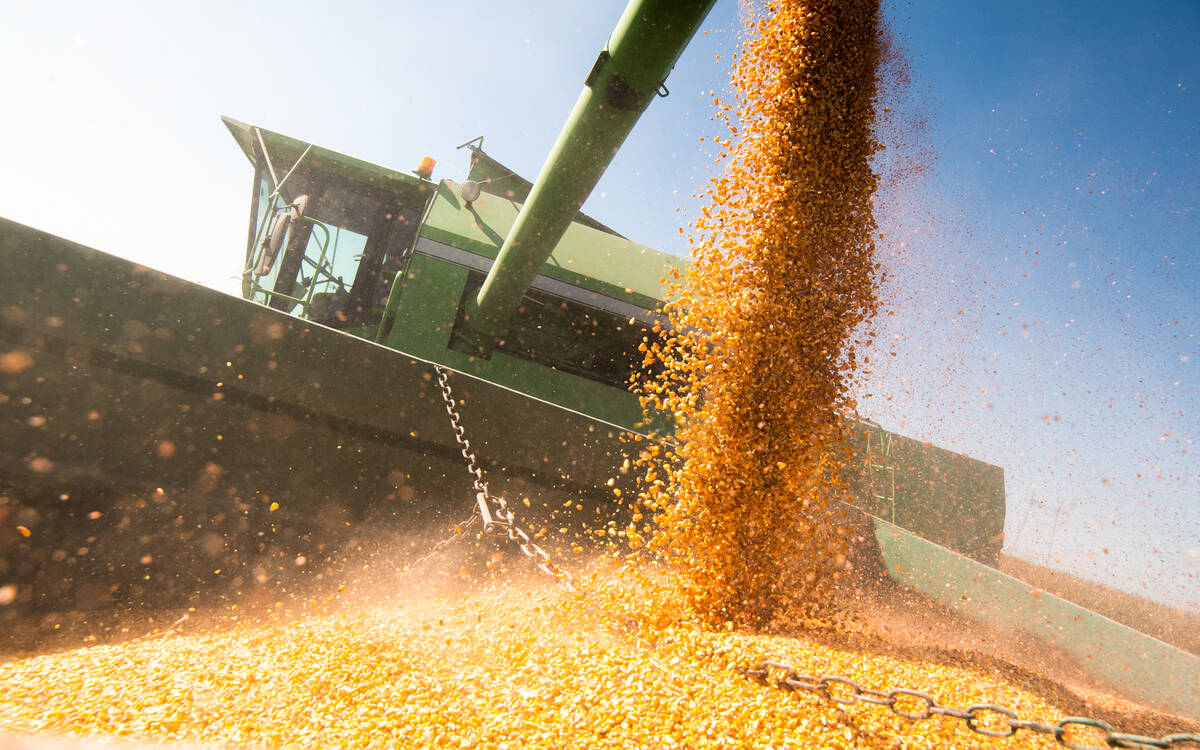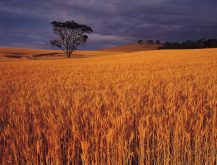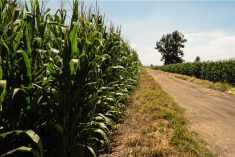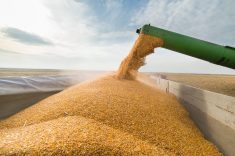A system of “pest-free places of production” (PFPP) is now on the drawing board for Prince Edward Island’s potato sector, following a meeting between federal and industry officials.
Federal Agriculture Minister and P.E.I. MP Lawrence MacAulay on Friday reported meeting with staff and representatives of the P.E.I. Potato Board, to discuss next steps in the face of new potato wart-related restrictions on the province’s crops since 2021.
Potato wart was first detected in the province in 2000, and after a six-month ban on P.E.I. potato exports to the U.S., a system was put in place allowing exports from lower-risk zones where the fungus hasn’t been detected and where the same equipment wasn’t used.
Read Also

Feed Grain Weekly: Corn affecting barley prices in Lethbridge
Corn imports entering Lethbridge have lowered prices for feed barley compared to those in Edmonton.
While not considered a human health or food safety risk, potato wart is known to reduce crop yields and can make potatoes unmarketable by ruining their appearance.
The zone system allowing U.S. exports continued up until October 2021, when potato wart was confirmed in two P.E.I. fields which were related to previous detections and were already under regulation. In November that year, the U.S. Department of Agriculture’s Animal and Plant Health Inspection Service (APHIS) advised U.S. border services to reject all shipments of P.E.I. potatoes.
P.E.I. potatoes for consumption were admitted again to the U.S. the following April — but exports of field-grown P.E.I. seed potatoes to the U.S. remain prohibited.
A federal ministerial order in place since last Nov. 21 allows for P.E.I. seed potatoes to move to other provinces on a case-by-case basis, and provides for tighter risk controls on P.E.I. table stock and processing potatoes.
‘Next steps’
The Canadian Food Inspection Agency (CFIA) last month completed its investigation into the two 2021 detections. The agency said it collected and analyzed 48,789 soil samples from P.E.I. fields associated with the two findings. Those samples confirmed potato wart in four more fields, bringing the province’s total to 37 affected fields since 2000.
Thus, CFIA said last month, the risks associated with the transmission of potato wart from fresh potatoes from P.E.I. “remain negligible when appropriate risk mitigation measures are in place and followed.”
With the probe complete, MacAulay and CFIA said Friday they’re “committed to engaging with the industry on next steps.”
Those steps, they said, will include criteria for designating PFPP in the province, to “support the movement of commodities including seed potatoes off of the island.”
Plans for a PFPP system were “discussed and welcomed” by the P.E.I. Potato Board during the meeting, the government said.
Over 95 per cent of P.E.I. potatoes continue to remain eligible for export to the rest of Canada and to the U.S., MacAulay said in a federal release, emphasizing “the importance of working together with growers as they maintain and enhance control measures, such as biosecurity and traceability activities” so as to maintain market access.
CFIA said it will “continue to engage” with the P.E.I. industry on program elements to renew Canada’s National Potato Wart Response Plan and work toward implementation of that updated plan in 2024.
A new long-term plan to help continue to contain, control, and prevent the spread of potato wart “will help maintain and improve the economic sustainability of the potato sector in P.E.I. and across Canada, and maintain crucial export markets,” the agency said. — Glacier FarmMedia Network
















